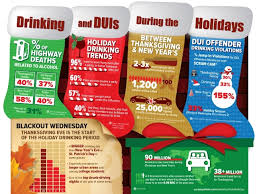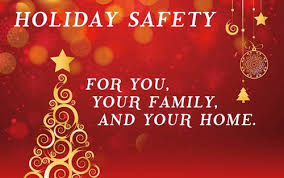Archive | December 2017
QUOTE FOR THURSDAY:
“The lack of snow in areas where snow usually falls is NOT a good thing. The reasons are Farmers need snow, plain and simple; if agricultural shortages, the end result is often that the prices for food will rise. Its a natural part of the ecological cycle.”
EnviroDad.com (an environmentalist blog)
QUOTE FOR WEDNESDAY:
I think you will enjoy life better and you will enjoy other people much better by following this rule. “Never hear what people think of you. Instead, hear what they are feeling and needing at the moment they’re expressing those thoughts.”
Marshall B. Rosenberg, Ph.D. (October 6, 1934 – February 7, 2015 was an American psychologist, mediator, author and teacher).
HOW TO STAY SAFE DURING THE HOLIDAYS:
The holiday Hanukkah is right here and Christmas with the New Year right around the corner, and it’s the time of year that we have to pay close attention to what is going on around us. Immediately following Thanksgiving the Christmas tunes started playing in the stores to match the display of holiday decorations, lights, Christmas trees and gift sets that all seem to miraculously appear overnight. For many of us, the holiday season can be very stressful with the demands of shopping, decorating, planning parties and the lack of money to spend on all these festivities may add up to distraction and anxiety. Predators are very busy this time of year, and they are ready to pounce on anyone who is simultaneously carrying a million shopping bags while searching for car keys and talking on the cell phone. Well by now we are all set for the holiday, so that is one good positive note in decreasing the stress. We are all guilty of befalling into the the mad hustle and bustle of the holidays with little focus on anything else. The downturn of the economy, high real unemployment rates, and very politically polarized as a nation which has fueled a negative influence on communities across the nation. That is exactly why a politically polarized nation is not good since there is no agreement with each other; just look at the news alone. Violent crimes, especially against innocent people, are on the rise, and the desperation of the times is only going to help influence the numbers to go up which has in NYC besides many other areas.
The following tips from the Los Angeles Police Department Crime Prevention Section can help you be more careful, prepared and aware during the holiday season.
- Shop during daylight hours whenever possible. If you must shop at night, go with a friend or family member.
- Dress casually and comfortably.
- Avoid wearing expensive jewelry.
- Do not carry a purse or wallet, if possible.
- Always carry your Driver License or Identification Card along with necessary cash, checks and/or a credit card you expect to use.
- Even though you are rushed and thinking about a thousand things, stay alert to your surroundings.
- Avoid carrying large amounts of cash.
- Pay for purchases with a check or credit card when possible.
- Keep cash in your front pocket.
- Notify the credit card issuer immediately if your credit card is lost, stolen or misused.
- Keep a record of all of your credit card numbers in a safe place at home.
- Be extra careful if you do carry a wallet or purse. They are the prime targets of criminals in crowded shopping areas, transportation terminals, bus stops, on buses and other rapid transit.
- Avoid overloading yourself with packages. It is important to have clear visibility and freedom of motion to avoid mishaps.
- Beware of strangers approaching you for any reason. At this time of year, “con-artists” may try various methods of distracting you with the intention of taking your money or belongings.
What I am thinking of Christmas is its a time when many people get depressed and stressed, unfortunately. People also drink more. So maybe there are more accidents waiting to happen. Just a caution to keep your defensive driving skills a little sharper perhaps.
When visiting with family and extended it can be stressful and a lot of times people wonder what the distant Aunt or in-law or brother etc… is thinking. A good rule of thumb is never assume or wonder what the other family person is thinking.
If you want to enjoy your life, particularly during high stress situations, I would strongly recommend you never hear what another person thinks.
I think you will enjoy life better and you will enjoy other people much better by following this rule. “Never hear what people think of you. Instead, hear what they are feeling and needing at the moment they’re expressing those thoughts.” words of wisdom by Marshall B. Rosenberg, Ph.D.
QUOTE FOR TUESDAY:
QUOTE FOR MONDAY:
“People tend to consume much more fat, salt, sugar, and alcohol during the holiday season,”. “Also, people tend to be less active due to the cooler weather. Overindulgence of food and alcohol along with inactivity raises the blood pressure and cholesterol levels. These risk factors combined increase your chances of having congestive heart failure, a stroke, or even a heart attack.”
Roberto Wayhs, MD, chief of cardiology at Methodist Charlton Medical Center.
QUOTE FOR THE WEEKEND:
“Have pumpkin pie instead of pecan pie. Even with a dollop of whipped cream, you’ll cut calories and sugar by at least a third. 2- Break physical activity up into smaller chunks so it fits into your schedule, like walking 10 minutes several times a day. 3- Schedule some “me” time every day—a nap, dog walk, or hot bath to get energy back for the next celebration.”.
CDC Center for Disease Control and Prevention
QUOTE FOR WEDNESDAY:
QUOTE FOR FRIDAY:
“Toys are supposed to be fun and are an important part of any child’s development. But each year just under 200,000 of kids are treated in hospital emergency departments for toy-related injuries under 5.”
kidshealth.org
QUOTE FOR THURSDAY:
“Even though there is currently no cure for Crohn’s disease, there is a wide range of treatment options available. Regarding Ulcerative Colitis, fortunately, there is a wide range of treatment options available that can help control ulcerative colitis (UC) as long as you stay on your treatment as prescribed.”
Chron’s and Colitis Foundation


